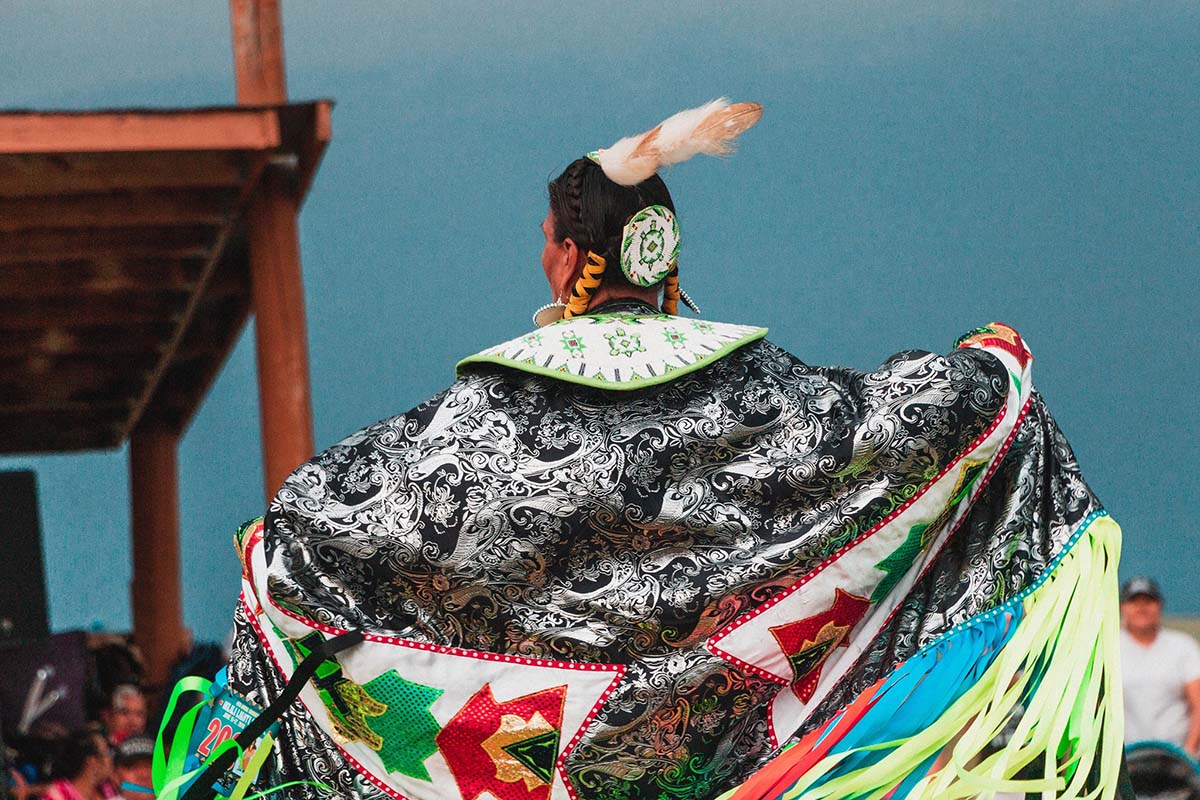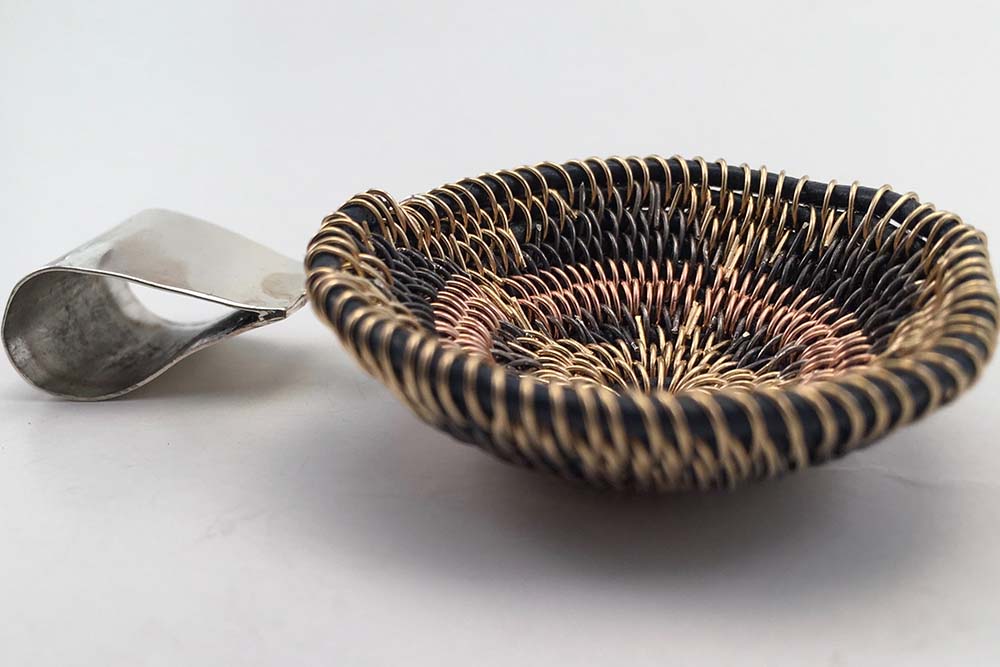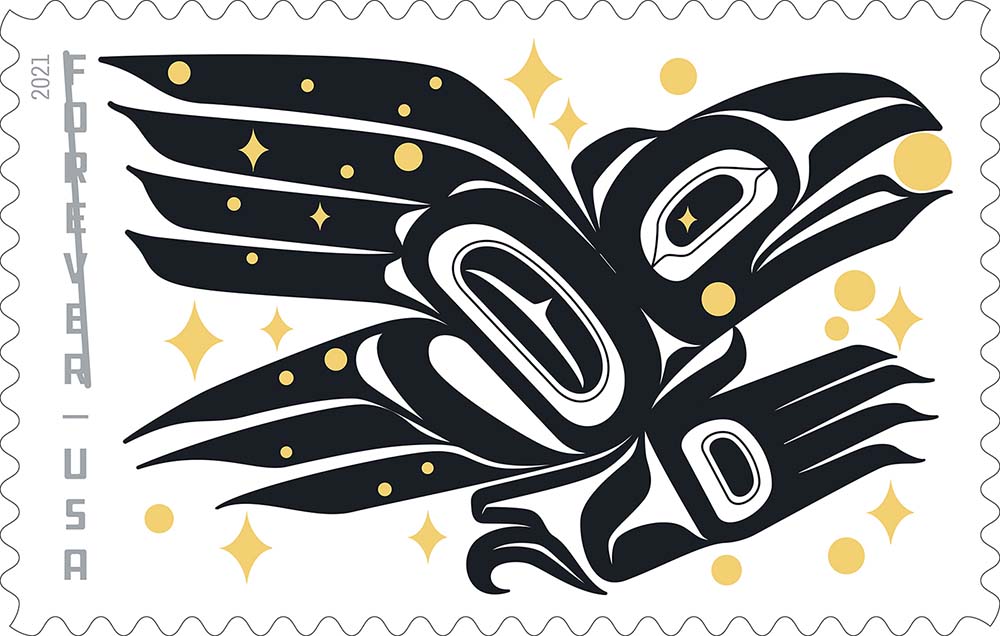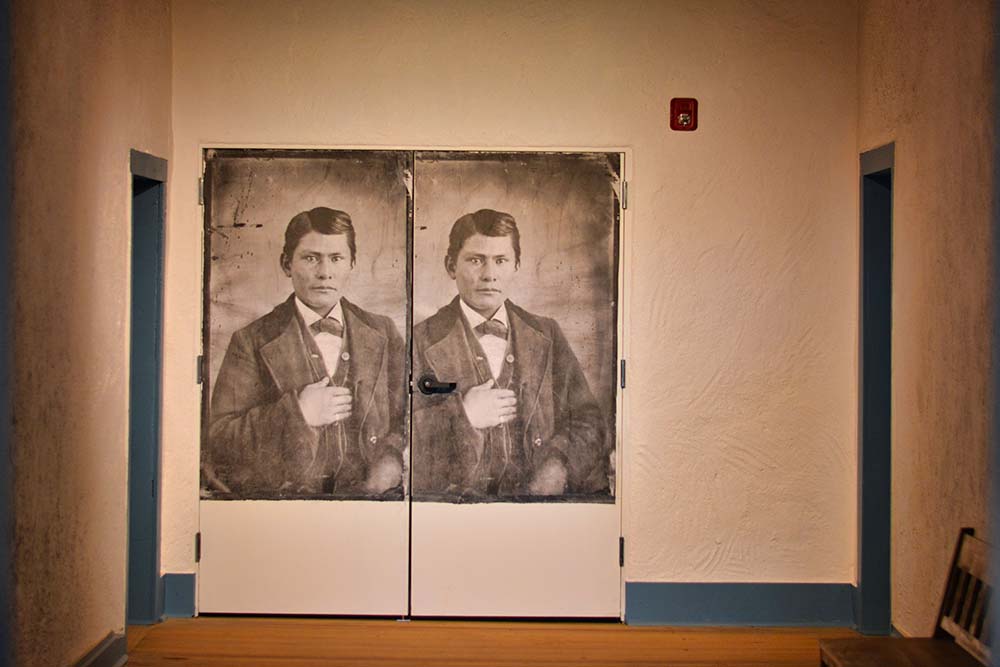
- Details
- By Tamara Ikenberg
The release of the soaring Raven stamp, a fresh Indigenous performance art series, and an exciting, enriching event for elders are all on the agenda this weekend and next week in Indian Country.
Peruse Native News Online’s event guide to identify your ideal Indigenous experience.
Want more Native News? Get the free daily newsletter today.
SWAIA Performances
WHEN: Friday, July 23 at 6 p.m. and 8 p.m.
WHERE: Santa Fe Playhouse, 142 East De Vargas St., Santa Fe, N.M. Tickets are $15.
 SWAIA Performances begin on Friday, July 23, at the Santa Fe Playhouse in Santa Fe, N.M. The first featured performer is hoop dancer ShanDien LaRance (Hopi/ Assiniboine/Tewa/Navajo). (Photo/ShanDien LaRance)
SWAIA Performances begin on Friday, July 23, at the Santa Fe Playhouse in Santa Fe, N.M. The first featured performer is hoop dancer ShanDien LaRance (Hopi/ Assiniboine/Tewa/Navajo). (Photo/ShanDien LaRance)
The Southwestern Association for Indian Arts (SWAIA) and the Santa Fe Playhouse have fused creative forces to present SWAIA Live Performances.
The monthly performances by Indigenous musicians, dancers, poets, and more artists, will take place the last Monday of each month, with the exception of the kick-off performance by hoop dancer ShanDien LaRance, which will happen on Friday, July 23.
LaRance (Hopi/Assiniboine/Tewa/Navajo) has traveled the country with her famous family, and was taught hoop dancing by her eldest brother, the late Nakotah LaRance.
When she was 18, ShanDien joined Cirque Du Soleil’s Big Top show “TOTEM,” and toured the world for eight years.
For future shows, SWAIA and the Santa Fe Playhouse are planning to match the performances with a lobby installation by a SWAIA artist.
The shows, curated by Goiyo Perez, Performing Arts Coordinator of SWAIA, will also be streamed live. For more information, click here.
Portland Indigenous Marketplace
WHEN: Saturday, July 24, 10 a.m. – 4 p.m.
WHERE: 432 NE 74th Ave, Portland, Ore. Also: www.indigenousmarketplace.org
 The handwoven metal pendants and necklaces of Navajo jeweler Asdzaa Olta-LaKota Scott will be available at the Portland Indigenous Marketplace on Saturday, July 24. (Photo/Asdzaa Olta-LaKota Scott)
The handwoven metal pendants and necklaces of Navajo jeweler Asdzaa Olta-LaKota Scott will be available at the Portland Indigenous Marketplace on Saturday, July 24. (Photo/Asdzaa Olta-LaKota Scott)
The Portland Indigenous Marketplace is a potpourri of art, fashion, accessories, beauty and bath products and much more.
Whether you’re interested in incense burners in the shape of Indigenous Goddesses from Hawai’ian Cherokee Organics, bewitched by bath bombs bursting with surprise Pikachus and puppies from Karabombs, or mesmerized by multi-colored woven metal pendants and earrings evoking nests and flowers from Navajo artist Asdzaa Olta, there is a unique Indigenous-made item for all tastes and price points.
The shopping, which can be done in person or online, will be complemented by entertainment including a performance by the Turquoise Pride Drum Group and storytelling by Ed Edmo (Shoshone-Bannock).
Stamp Release Ceremony
WHEN: Friday, July 30, 11 a.m.
WHERE: Walter Soboleff Building/Sealaska Heritage Institute, 155 S. Seward St., Juneau, Alaska. Also: Sealaska Heritage Institute Youtube
 A release ceremony for the “Raven Story” stamp, designed by Tlingit artist by Rico Lanáat’ Worl, will take place on Friday, July 30, at the Walter Soboleff Building/Sealaska Heritage Institute in Juneau, Alaska.(Photo/U.S. Postal Service)
A release ceremony for the “Raven Story” stamp, designed by Tlingit artist by Rico Lanáat’ Worl, will take place on Friday, July 30, at the Walter Soboleff Building/Sealaska Heritage Institute in Juneau, Alaska.(Photo/U.S. Postal Service)
Alaska Native culture is putting its stamp on the U.S. Postal Service.
The new star-studded Raven Story stamp, the first USPS stamp designed by a Tlingit artist, will be celebrated at a release ceremony on Friday, July 30, in front of the Walter Soboleff Building in Juneau, and on the Youtube channel of Sealaska Heritage Institute (SHI), a nonprofit promoting and perpetuating the art of the Tlingit, Haida and Tsimshian people of Southeast Alaska.
The stamp captures the tale of Raven, the Trickster of Tlingit culture, setting free the sun, and is designed by Tlingit and Athabascan artist, educator and businessman Rico Lanáat’ Worl.
Worl is the owner of Trickster Company, which sells Alaska Native-designed art, jewelry, housewares, skateboards, basketballs, and more—with modern flair.
He sees the Raven Story stamp as a potential tool for amplifying appreciation and recognition of Tlingit culture all over the world.
“I'm just really hoping that people are inspired by the stamp, not just by the art itself, but inspired to get deeper into it, even if it's just doing a few Google searches like, ‘Who are Tlingit people?’ ‘What is Tlingit art?’ ‘What is formline?’ I hope it is a gateway for people's learning,” Worl told Native News Online last December.
Antonio Alcalá, who served as art director on the stamp project, explained why it’s crucial for the Postal Service to feature a stamp created by an Alaska Native artist.
“A challenge with representing Native communities and Native art is that the broader American culture imagines them as not progressing… Tlingit culture and its contributions are worthy of presentation on a stamp,” Antonio Alcalá told Native News Online last December. “Stamps are one of the few ways that the United States has to brand itself. There's the flag of course, and there's money. But stamps are one of the only other official U.S. government visual forms that go out to everywhere in the country and announce to the country and really to the world that these are the things we find are important and valuable and worthy of commemorating.”
Raven Story is now available for pre-sale.
American Indian Elders Conference
WHEN: Sunday, Aug. 1 – Friday, Aug. 6
WHERE: Nugget Resort and Casino, Reno, Nev.; www.nicoa.org; Register here
“Resilience for Tomorrow…Together” is the theme of this year’s American Indian Elders Conference, presented by the National Indian Council on Aging (NICOA).
The six-day event at the Nugget Resort in Reno, Nev., features a health fair, cultural dinners, bingo, a fashion show, focus groups, and workshops and symposia with topics including the Role of Tribal Leaders in Reaffirming the Value of Elders In Preserving Tribal Cultures and Native American Veterans: Issues and Concerns as They Age.
Unsilenced: Indigenous Enslavement in Southern Colorado
WHEN: Open now. No closing date yet announced.
WHERE: Fort Garland Museum and Cultural Center, 29477 Highway 159, Fort Garland, Colo.
 Portraits of Juan Carson, an enslaved Navajo youth, are featured in the current exhibit Unsilenced: Indigenous Enslavement in Southern Colorado at the Fort Garland Museum and Cultural Center. (Photo/History Colorado)
Portraits of Juan Carson, an enslaved Navajo youth, are featured in the current exhibit Unsilenced: Indigenous Enslavement in Southern Colorado at the Fort Garland Museum and Cultural Center. (Photo/History Colorado)
A new installation by artist jetsonorama, a.k.a. Chip Thomas, reveals the faces and amplifies the voices of Colorado’s historically ignored enslaved Indigenous people.
Currently on view at History Colorado's Fort Garland Museum and Cultural Center in the San Luis Valley, the exhibit “Unsilenced: Indigenous Enslavement in Southern Colorado,” combines historic photos of Indigenous captives and images from an 1865 census of enslaved Indigenous people in Colorado’s present-day Conejos and Costilla Counties, to illuminate the experiences of captives including Navajo youth Juan Carson, and slave owners like Indian Agent and first Lt. Gov. of Colorado Lafayette Head.
Thomas is uniquely qualified to take on this project. A photographer, public artist, activist, and physician, he has been working on the Navajo Nation since 1987. There, he coordinates the Painted Desert Project, a community building project creating a series of murals spanning the Navajo Nation, which reflect respect for the tribe’s rich history. The murals are painted by reservation residents and artists from all over the world.
“As an African-American who has worked in Dinétah for the past 34 years, diving into the history of Native enslavement has been an opportunity to connect historical events previously obscured,” Thomas said in a statement. “Learning the story of Lafayette Head, seeing the remains of his 1850s home in Conejos County—and the quarters for his family’s enslaved people—resonated deeply, having just completed two plantation tours in South Carolina.”
There is no closing date yet announced for the exhibit, which is a fresh addition to History Colorado's ongoing Borderlands of Southern Colorado initiative. The initiative centers Chicano, Indigenous, and Mestizo perspectives through its speaker series, memory projects, and exhibits. The initiative also encourages descendants and community members to share their own histories during workshops.
To participate, contact Eric Carpio, Chief Community Museum Officer and Director of Fort Garland Museum & Cultural Center at History Colorado at [email protected].
Have an upcoming event? Email: [email protected]
More Stories Like This
Watermark Art Center to Host “Minwaajimowinan — Good Stories” ExhibitionMuseums Alaska Awards More Than $200,000 to 12 Cultural Organizations Statewide
Zuni Youth Enrichment Project Takes Top Emerging Artist Apprentices to Phoenix for Artistic Exploration and Cultural Immersion
From Dishwasher to Award-Winning Chef: Laguna Pueblo's Josh Aragon Serves Up Albuquerque's Best Green Chile Stew
Rob Reiner's Final Work as Producer Appears to Address MMIP Crisis
Help us defend tribal sovereignty.
At Native News Online, our mission is rooted in telling the stories that strengthen sovereignty and uplift Indigenous voices — not just at year’s end, but every single day.
Because of your generosity last year, we were able to keep our reporters on the ground in tribal communities, at national gatherings and in the halls of Congress — covering the issues that matter most to Indian Country: sovereignty, culture, education, health and economic opportunity.
That support sustained us through a tough year in 2025. Now, as we look to the year ahead, we need your help right now to ensure warrior journalism remains strong — reporting that defends tribal sovereignty, amplifies Native truth, and holds power accountable.
 The stakes couldn't be higher. Your support keeps Native voices heard, Native stories told and Native sovereignty defended.
The stakes couldn't be higher. Your support keeps Native voices heard, Native stories told and Native sovereignty defended.
Stand with Warrior Journalism today.
Levi Rickert (Potawatomi), Editor & Publisher

